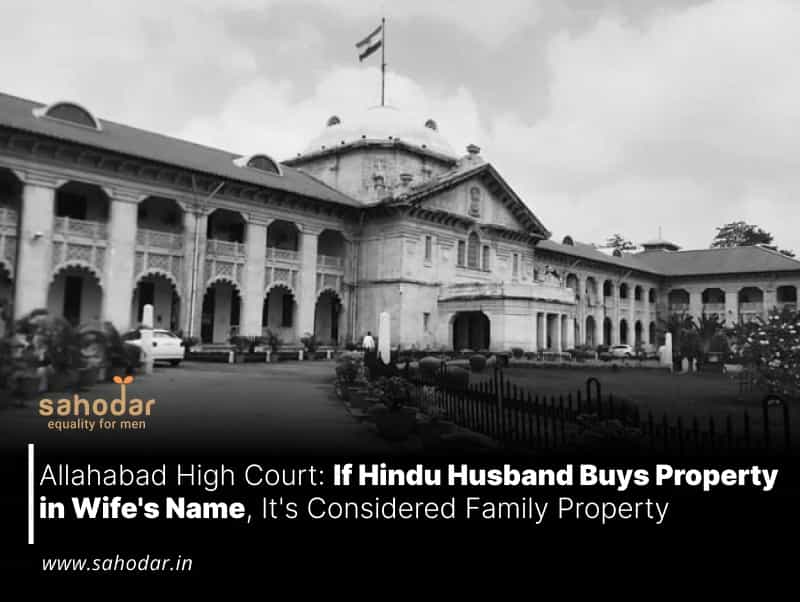The Allahabad High Court, in its adjudication, affirmed that the acquisition of property by a Hindu husband in the name of his homemaker wife, particularly where the latter lacks an independent source of income, warrants the presumption that such property pertains to the family estate.
This pronouncement transpired within the purview of an appeal brought forth before the Lucknow Bench of the Court. The appellant sought redress against the denial of his injunction application under Order 39 Rule 1 and 2 of the Civil Procedure Code (CPC) by the Civil Judge.
A Single Bench of Justice Arun Kumar Singh Deshwal observed, “This Court under Section 114 of Indian Evidence Act may presume the existence of fact that the property purchased by Hindu husband in the name of his spouse, who is homemaker and does not have independent source of income, will be the property of family, because in common course of natural event Hindu husband purchases a property in the name of his wife, who is homemaker and does not have any source of income for the benefit of family.”Top of Form
Advocate Pritish Kumar served as legal representative for the appellant, whereas Advocate Ankit Srivastava acted in representation of the respondents.
The crux of the matter pertained to a civil suit initiated by the appellant husband against the respondents (inclusive of his wife and others), seeking a declaration asserting his co-ownership of a 1/4th share in the disputed property. The contention rested upon the assertion that the property in dispute, acquired by the appellant’s father, constituted joint family property. Notably, the appellant underscored his wife’s status as a homemaker, devoid of any autonomous financial means.
The disputed property was procured through a sale deed orchestrated by the appellant’s father. Additionally, the appellant himself undertook construction activities on the premises, subsequently utilizing it as a familial business establishment. Subsequent to the initiation of the suit, an application pursuant to Order 39 Rule 1 and 2 of the Civil Procedure Code (C.P.C.) was filed, seeking interim injunction to prevent the respondents from alienating the property. However, this application was dismissed by the lower court, thereby prompting the appellant’s recourse to the High Court for adjudication.
The High Court in view of the facts and circumstances of the case noted, “… here the appellant is claiming the declaration of only 1⁄4th share in the property in dispute on the ground that the property belongs to a joint Hindu family and the property was purchased during lifetime of father of the appellant in the name of respondent no.1, who was homemaker.”
The Court held that in such case prima facie the property is joint Hindu family property and protection of property from transferring to a third party is necessary.
“… consequently this Court finds that the Court below, while passing the impugned order dated 25.04.2023 has not applied his mind despite being a prima facie case, and in such case protection is necessary against further transferring the property or changing the nature of same, if same is not protected, there are chances the property may be transferred or nature of property may be changed in that case even if the appellant’s suit is decreed, then he will suffer irreparable loss and injury”, it added.
The Court issued an injunction, prohibiting the respondents from transferring the contested property while the case remained unresolved.
Consequently, the High Court granted the appeal and annulled the challenged ruling.

